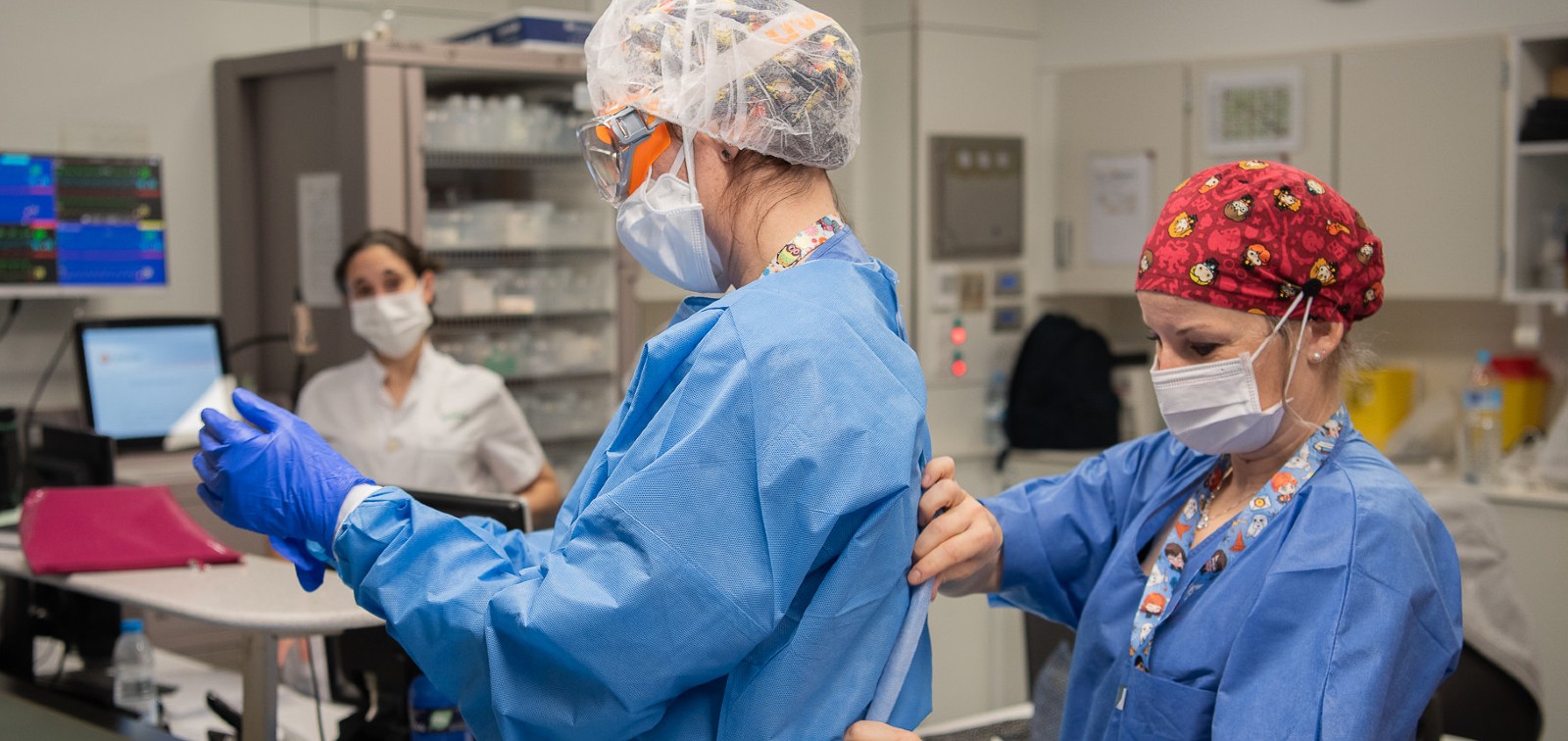Anti-SARS-CoV-2 Antibodies Can Persist for Almost Two Years After the Disease, Study in Healthcare Workers Shows
The study, launched at the beginning of the pandemic, followed 247 healthcare workers of central Catalonia for 20 months after having COVID-19
13.10.2022
In a cohort of unvaccinated healthcare personnel, anti-SARS-CoV2 antibodies were maintained for at least 20 months after having the disease. Obesity, age and smoking are associated with a lower antibody response. These are the main conclusions of a study co-led by the Barcelona Institute for Global Health (ISGlobal), the Catalan Health Institute (ICS) of central Catalonia and the Jordi Gol Institute (IDIAP JG), with the collaboration of the Daniel Bravo Andreu Private Foundation (FPDBA), that has been published in BMC Medicine.
Nearly 35% of the world's population has not yet received a single dose of COVID-19 vaccine, which means their immunity to the virus depends solely on infection. Therefore, knowing the duration and effectiveness of the immune response elicited by SARS-CoV-2 infection are key questions in guiding decisions aimed at controlling this and future coronavirus pandemics.
In a recent study of a Catalan population cohort aged 40-70 years, ISGlobal researcher Carlota Dobaño and colleagues showed that one in three people no longer had detectable antibodies one year after infection if they had not been vaccinated. "However, it is important to do this type of study in different cohorts," Dobaño argues. "The cohort of healthcare workers described here includes younger people with higher exposure to the virus, who had a symptomatic infection, and in whom we have been able to take regular samples over almost two years," she adds.
The researchers evaluated the persistence of IgM, IgA and IgG antibodies directed against the Spike (S) and Nucleocapsid (N) proteins of the virus in samples from 247 healthcare workers from the CoviCatCentral cohort, who developed the disease and were not yet vaccinated, taken at eight different times between the summer of 2020 and November 2021.
The results show, as expected, a gradual and considerable decline in antibody levels, but more than 90% of participants still had antibodies to the five viral antigens tested, at all times during the study. Even among the 23 people who had not yet been vaccinated in November 2021, seropositivity remained at 95%.
Only eight reinfections were observed during the follow-up period, suggesting that immunity is robust and durable even against new variants such as Alpha and Delta. Anna Ruiz-Comellas, researcher at the Catalan Health Institute of central Catalonia, warns that “the study was done before the spread of the Omicron variant”. While Gemma Moncunill, senior co-author of the study together with Ruiz-Comellas, explains: "We observed an increase in IgM and IgA in November 2021, most likely a reflection of asymptomatic infections at the beginning of the sixth wave in Catalonia."
The analysis of samples taken right before the vaccine roll-out confirms what has been observed in previous studies: age and smoking are associated with lower antibody levels, while hospitalization and certain symptoms (fever, loss of smell and taste) is associated with higher levels. "This would also explain why in this study we are seeing such long-lasting seropositivity, as all infections recorded in healthcare workers were symptomatic," Dobaño points out.
The results suggest that maintaining detectable antibody levels (particularly anti-Spike IgG) confers protection against reinfection even in the absence of vaccination. However, the authors warn that this study was conducted before the arrival of Omicron, and that previously infected people also benefit from vaccination, since hybrid immunity offers the best protection against infection and disease.
Reference
Dobaño C, Ramírez-Morros A, Alonso S et al. Sustained seropositivity up to 20.5 months after Covid-19. BMC Med. 2022. DOI: 10.1186/s12916-022-02570-3



